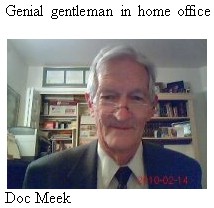 Searching for the causes of autism
Searching for the causes of autism
Monday, July 26, 2010
Photo of statue at Carmen B. Pingree Center for Children with Autism, Salt Lake City, Utah, USA: http://www.carmenbpingree.com/

.
.
.
.
.
.
…………………………………………………………………………………..
I am very grateful to Dr. Ruth Buczynski, the president and co-founder of NICABM, for our guest article today. NICABM is the acronym for National Institute for the Clinical Application of Behavioral Medicine.
From Genetics to Environmental Toxins: Searching for the Causes of Autism
By Ruth Buczynski, PhD, July 24th, 2010
Autism – just the word causes panic in parents everywhere.
When I was growing up, polio had a similar effect. But the vaccine for polio has been found, while work on the prevention and treatment autism is still continuing feverously.
To the horror of families with an autistic child, the scientific community can offer little in the way of reassurances.
The main reason for this stems from the lack of agreement over the causes of the disorder. And without knowing the causes, it’s pretty difficult to design treatments.
……………………………………………………………………………………….
Without knowing the causes, it’s pretty difficult to design treatments
……………………………………………………………………………………….
We can not even agree on figures for autism. With the change in classification of autistic symptoms, has the number of autism cases increased or held the same?
The scientific world is rife with theories, many of which were presented in the latest issue of Acta Neurobiologiae Experimentalis out of Warsaw, Poland.
This journal has never before been on my radar, but they decided to dedicate a whole issue of the journal to the autism debate and so caught my attention.
And what are the theories that are currently being brandished around?
Well, genetics and immune deficiency problems are at the top of many experts’ causal list.
New research represented at the Pediatric Academic Societies (PAS) by Ning Lei, PhD from Princeton University linked the newly discovered mutation of four genes with autism.
One of the new genes identified was neural cell adhesion molecule 2 (NCAM2). NCAM2 is expressed in the hippocampus of the human brain — a region previously associated with autism.
One of the interesting things about this study is that Dr. Lei found that NCABM2 mutations were also common in the family members of autistic children, though these family members had no autism themselves.
The idea then is that other possible factors, including environmental toxins, have to come into play in order to for autism to develop.

The role of environmental toxins in the etiology of autism is as hotly debated as any of the other theoretical causes.
For many in the health field, the pervasiveness of environmental toxins in other disorders does make one question its role in autism.
Environmental toxins are disturbing for one reason because they have the ability to mask the detection of other conditions, such as hypothyroidism.
According to Mark Starr, MD, these toxins can disguise the levels of thyroid hormone in the body, making it nearly impossible to diagnose.
Because the thyroid is necessary for maintaining health, it is critical for it to function properly.
To learn more about how environmental toxins are masking thyroid malfunction, and how thyroid malfunction can be treated, tune in this coming Wednesday to NICABM’s free teleseminar series: Clinical Applications of Mind-Body Medicine: New Thinking about Stress and the Remarkable Power of Psychoneuroimmunology.
It’s free, you just have to sign up.
In the meantime, I welcome your thoughts on the causes of autism.
Do you know of someone who has been diagnosed with autism and whose story would be helpful to the larger debate about the causes and treatments of the disorder?
Please share your thoughts and opinions below [click on the little blue word “comments”] ……………………………………………………………………………….
Thank you, Dr. Ruth!
Blessings, Doc Meek, Monday, July 26, 2010, at South Jordan, Utah, USA
——————-
J. Collins Meek, Ph.D. (Doc Meek)
“What if you are smarter than you think?”
Learning Specialist https://docmeek.com
For brain health, ensure heart health (short video):
http://www.amiraclemolecule.com/themeekteam
More on heart health http://www.themeekteam.info
Ph (801) 971-1812 (Jeannette); Fax [801] 282-6026
THE LEARNING CLINIC WORLDWIDE, INC.
CANADA: P.O. Box 3105, Sherwood Park, AB T8H 2T1
TONGA: Mele Taumoepeau, P.O. Box 60, Nuku’alofa
USA: 3688 W 9800 S, #138, South Jordan, UT 84095
